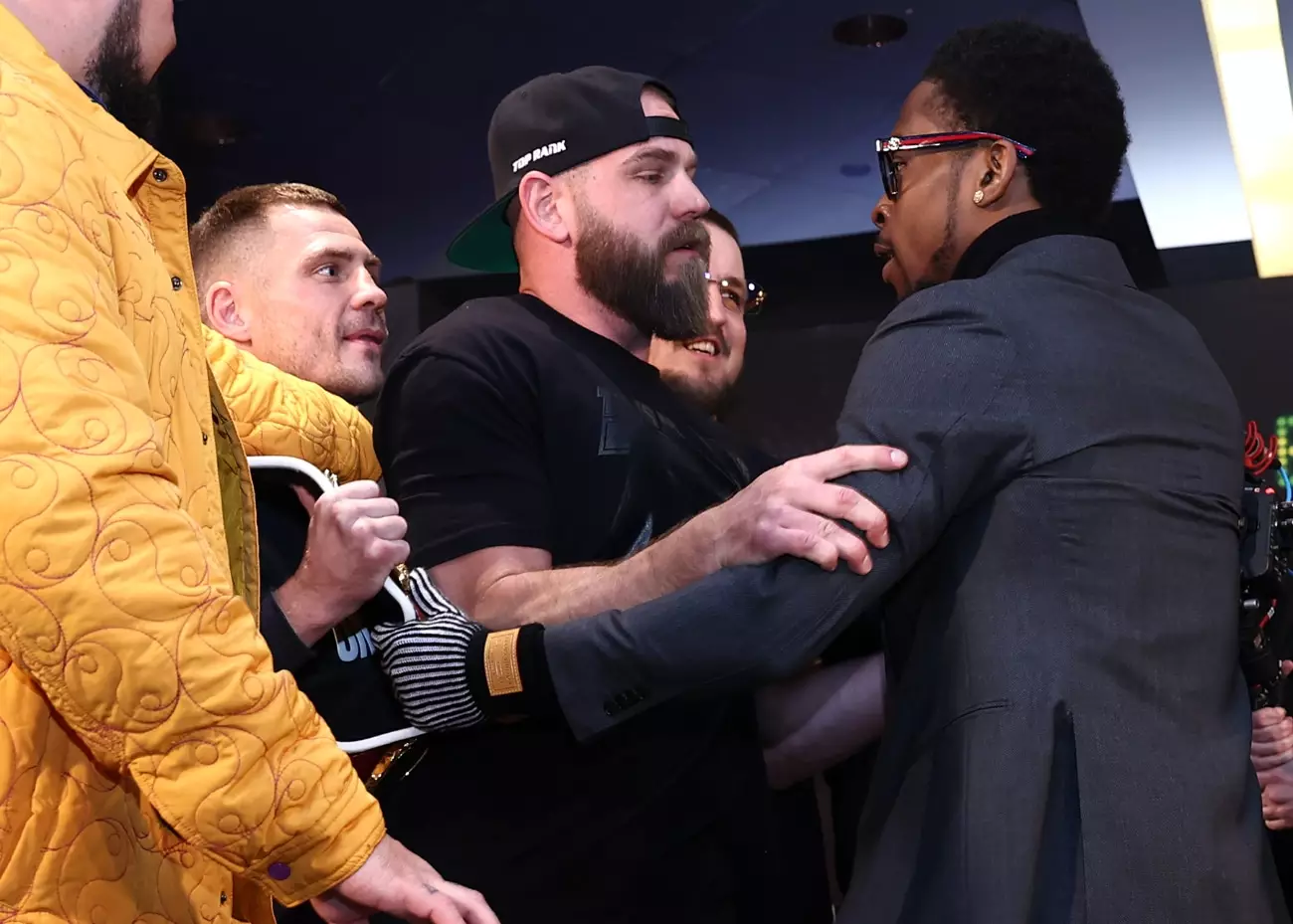The boxing world has been buzzing with controversy following Keyshawn Davis’s accusations against WBO lightweight champion Denys Berinchyk. The incident kicked off after Davis received a peculiar package at his hotel room, containing bananas and watermelons from an unknown sender. In an emotional outburst during a press conference, Davis accused Berinchyk of orchestrating what he interpreted as a racist prank, claiming this malicious act was not only aimed at him but also a reflection of Berinchyk’s character. Conspicuously absent was any substantive evidence linking the champion to the alleged act. Davis’s accusations sparked a vibrant discussion among fans and pundits alike, drawing a significant spotlight on the ethics of character assassination within the sport.
Teofimo Lopez’s reaction to this unfolding drama only intensified the situation. His social media post appeared to revel in Davis’s distress, inciting speculation among fans who suggested that Lopez might have been the one behind the contentious package. This scenario underlines the complex web of relationships in boxing—a sport that thrives on conflict but often crosses ethical boundaries. While Lopez’s actions have added a layer of humor for some fans, the seriousness of racial accusations cannot be overlooked. The influx of social media commentary cultivates an environment where the lines between reality and sensationalism blur, allowing for narratives to flourish without adequate scrutiny. The platform has immense power, and its use in this instance serves as both an entertainment and a cautionary tale about accountability.
Davis’s insistence on labeling Berinchyk as a “racist” without providing any proof speaks volumes about the culture within professional boxing. The accusation, while powerful, carries severe implications when levied without evidence. Character assassinations can ruin reputations and dilute the sanctity of genuine instances of discrimination. Berinchyk’s repeated denials highlight the uneven playing field for athletes who find themselves at the mercy of public opinion fueled by unverified claims. If Lopez is indeed the source of the prank, it raises a larger question about the moral responsibilities athletes bear in their creative expressions of rivalry. The lack of evidence in Davis’s claims not only undermines his argument but could ultimately tarnish his own reputation in a divisive manner.
During the same press conference, Keyshawn Davis sought to assert his position as a formidable contender in the lightweight division. His declarations about the importance of holding a world title reflect the pressure young athletes face in establishing themselves as credible threats. The desire to be recognized as one of the best is an intrinsic motivation for fighters at this stage in their careers, but it begs the question: how does one achieve that recognition? Davis has demonstrated he is strategic in choosing his opponents, having shied away from the risks posed by fighters like Andy Cruz while expressing eagerness to confront Berinchyk, who is positioned to bring him the accolade he covets.
Yet, Davis’s comments reveal an interesting paradox; he was willing to engage with Berinchyk before he obtained the title but has since dismissed other challengers as “not valuable.” It serves to suggest that Davis may be selectively maneuvering through the ranks to optimize his opportunities for success. This strategic mindset can frequently lead to career advancements but also opens itself up to accusations of cowardice when facing high-caliber opponents too early in one’s career.
The ongoing drama surrounding Keyshawn Davis and Denys Berinchyk encapsulates the intrigue, challenges, and ethical dilemmas within boxing. What begins as a mere rivalry can escalate into serious accusations that threaten careers and reputations. As fans and critics alike analyze the behaviors and statements of these fighters, the sport may benefit from a reckoning regarding the appropriateness of certain tactics used in the pursuit of glory. Ultimately, the boxing community must navigate the thin line between entertainment and ethical responsibility, remembering that the sport’s integrity rests on the willful adherence to honor and fairness. Only then can the true spirit of competition be upheld, reinforcing the values that elevate boxing beyond mere spectacle.

